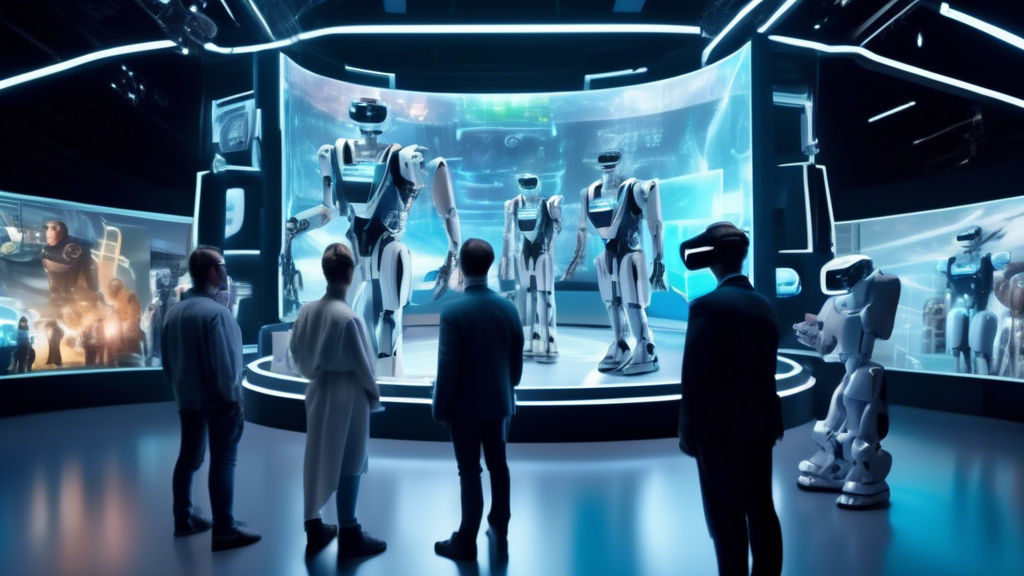AI’s Role in Hollywood Production and Virtual Advertising
The entertainment industry, particularly Hollywood, has always been at the forefront of technological experimentation and advancement. From silent films to modern-day blockbusters, innovation has played a key role in captivating audiences globally. In recent years, Artificial Intelligence (AI) has emerged as a game-changer, influencing various aspects of film production and advertising. This article delves into AI’s multi-faceted role in Hollywood production and virtual advertising.
AI in Scriptwriting and Content Creation
Scriptwriting has traditionally been a domain dominated by human creativity and effort, but AI is gradually making inroads. Sophisticated algorithms can now analyze large volumes of text to identify patterns, genres, and popular themes, providing writers with actionable insights. For instance, AI can predict storyline outcomes that are more likely to succeed based on historical data. Some advanced AI systems can even generate script drafts, offering writers a foundation to build upon, thus streamlining the creative process and shortening development cycles.
AI in Pre-Production and Planning
During the pre-production phase, AI aids in meticulous planning and budgeting. Machine learning algorithms can predict costs and allocate resources efficiently by analyzing previous projects and current data. These systems can optimize shooting schedules, ensuring that cast and crew availability are maximized, and minimize equipment downtime. In addition, AI-driven software can enhance location scouting by analyzing geographical data and providing virtual simulations, helping directors and producers make better-informed decisions.
AI in VFX and Post-Production
Visual effects (VFX) and animation are areas where AI has shown substantial impact. Traditional methods of creating effects are labor-intensive and time-consuming. AI algorithms can automate repetitive tasks like rotoscoping, compositing, and color correction, significantly reducing the workload on VFX artists. Furthermore, AI techniques such as deep learning are used to create lifelike CGI characters by studying real facial expressions and movements, making the on-screen experience more authentic.
AI in Marketing and Predictive Analytics
Marketing a film effectively is just as critical as its production. AI is revolutionizing virtual advertising by offering predictive analytics that help studios better understand audience preferences. Machine learning models can analyze social media trends, box office data, and consumer behavior to forecast which demographics are likely to engage with a specific film. This allows for the creation of targeted marketing campaigns that can significantly boost a film’s reach and profitability.
Personalized Advertising and AI-Driven Trailers
One of the fascinating applications of AI in virtual advertising is the creation of personalized trailers. By analyzing individual viewer data, AI can assemble trailers that highlight aspects of a movie that a particular viewer would find most appealing. This personalization extends beyond trailers to banner ads and social media content, making it more likely to capture consumer attention and engagement.
AI in Virtual Product Placement
Traditional product placement methods often require physical presence on set, adding complexities to the filming process. AI-powered software can now insert products into scenes during post-production seamlessly. This allows advertisers to customize product placements for different regions and audiences, enhancing ad relevance and effectiveness. For instance, a film shown in the United States may feature different brands than the same film shown in Asia, catering to local consumer preferences.
Challenges and Ethical Considerations
Despite its numerous advantages, the integration of AI in Hollywood production and virtual advertising is not without challenges. There are concerns about job displacement, as some roles traditionally filled by humans may become automated. Additionally, there are ethical considerations surrounding data privacy and the extent to which AI-generated content can influence consumer behavior. It is crucial for industry stakeholders to navigate these challenges thoughtfully, ensuring that AI augments rather than replaces human creativity and ingenuity.
In conclusion, AI is profoundly reshaping the landscape of Hollywood production and virtual advertising. From scriptwriting and VFX to personalized marketing and product placement, AI’s capabilities are both broad and transformative. As technology continues to advance, the synergy between human creativity and artificial intelligence promises to push the boundaries of what is possible, creating richer, more immersive cinematic experiences for audiences worldwide.
Discover Royalty Free Music for Content Creators – Pro Sync Licensing Available


